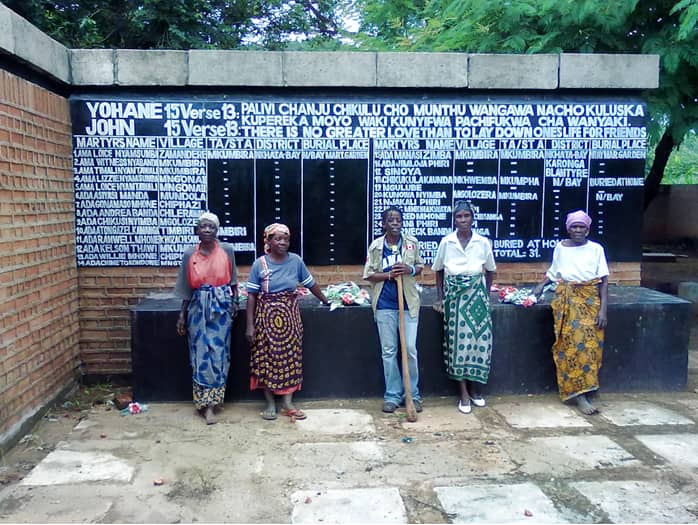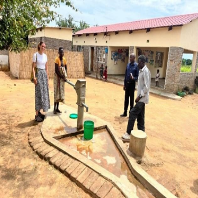march2018newsletter
March 2018
THE URAC UPDATE MONTHLY
1959 martyrs as remembered in Nkhata Bay in March 2018

Note this is only the first page of the 6 paged news letter, click the download button to get a complete copy
Since the day (3rd March) was set aside to remember the fallen heroes of the 1959 massacre by British soldiers, over time it has lost its core meaning. Right from the onset the day was characterized by harsh developments. People were forced to remain indoors, observe the day with a somber mood and all major social and economic activities were suspended. Those that were seen to contravene the set rules were detained. A radio play ‘Akufwiyanji’ and funeral songs were aired throughout the day on the only public broadcaster then. Things only changed after 1994 when the UDF led government separated the Chilembwe day from the 3rd March events. The 15th January was set aside as the Chilembwe day while 3rd March was set aside to remember those that lost their lives during the State of Emergency. After consultations with local leaders in Nkhata Bay, the government erected a memorial pillar close to where people were killed. Since then every year the people of Nkhata Bay mourn the loss of their relations. The government only sends a representative to grace the memorial. The main cause of massacre was local resistance to colonialism and imposition of a federal system of government involving countries now called Malawi, Zambia and Zimbabwe. Based on narratives from lived experiences, on this particular day the ship docked at Nkhata Bay Town from Karonga carrying leaders who were arrested in Karonga and some from Chilumba. The ship wanted to load those detained in Nkhata Bay to join their colleagues in the ship en route to Kanjedza detention camp in Limbe. When news broke out that the ship carried some political detainees and wanted to load some detained in Nkhata Bay, the local people blocked the whole process. They demanded the immediate release of those detained in the ship and at the same time blocked the colonialists from taking those detained in Nkhata Bay to board the ship
Sensing the danger, and with the use of Northern Rhodesia forces, the District Commissioner then read the anti-riot act at least three times. There are two stories to this. Some say the local people did not understand the antiriot act while others said they were simply defiant. Upon seeing that the people were still ‘adamant’, the soldiers opened fire and killed many Africans. The actual number of those that were actually killed vary but the outcome marked the turning point of political events in Nyasaland (now Malawi). Eye witnesses say over 30 were murdered. News of this massive killing captured headlines in London so much so that it became clear from the colonial office that the Federation was not favoured and the move towards the release of those detained commenced. Some were released in April 1960, especially those from Gweru (Zimbabwe) prison while others were released in later months especially those from Kanjedza (Malawi) detention camp. It is an undeniable fact that the events that took place in Nkhata Bay marked a turning point in the demand for freedom in Malawi. It is suggested that there is need to go beyond just offering prayers on the day. It is necessary recognise and reward those that suffered during the day and the entire period. The events in Nkhata Bay should be given special recognition in Malawi’s history as they marked the turning point towards the road to freedom. The significance of this day should also go beyond mere politics. The relatives of those that lost their lives at Nkhata Bay should be recognised and be made part of the group that take part in recounting the heroic stories of their loved ones. In doing so, the legacy will live on. Chrispin Mphande, Mzuzu University
THE URAC UPDATE MONTHLY Vol. 1 Number 3, March 2018 Page. 1

